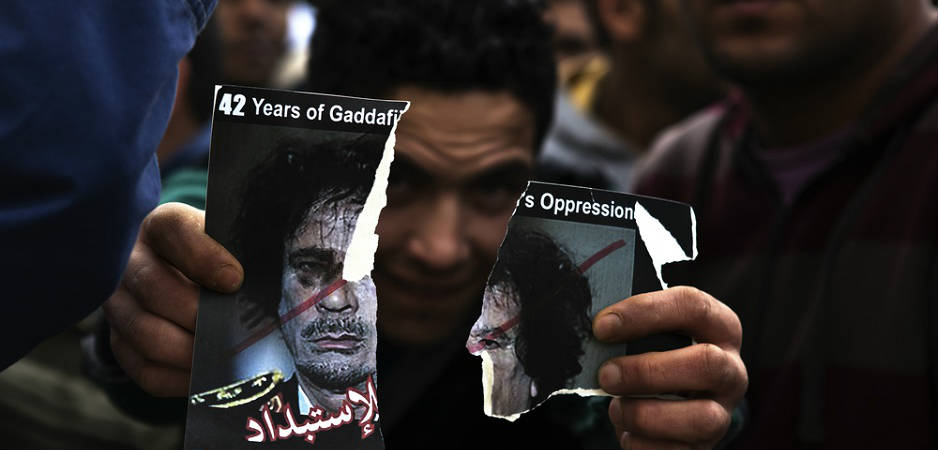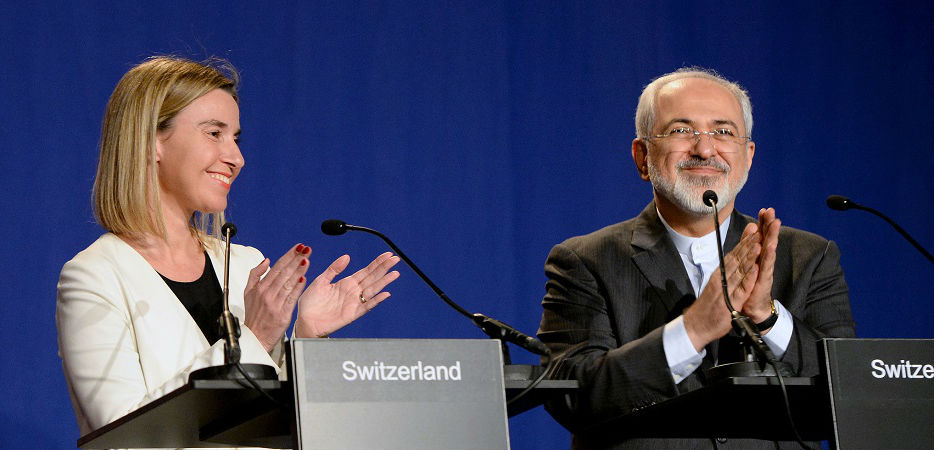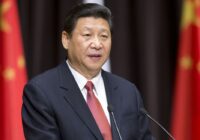The life, liberty and pursuit of happiness of African Americans continue to be in jeopardy 150 years after the Civil War.
On April 9, 1865, the American Civil War ended. On the 150th anniversary of the end of that war, inequality and injustice continue to blight the lives of African Americans. In South Carolina, a policeman shot an unarmed black man eight times in the back as he was running away. Captured on video, the incident has triggered outrage. In the land of the free and the home of the brave, some are still less equal.
In August 2013, the United Nations Human Rights Committee (UNHRC) published a report on the US criminal justice system. The report makes grim reading. The democratic US boasts of a higher incarceration rate than dictatorships like Egypt and Russia. More than 2.2 million people are locked up. One in three black men is likely to go to jail in his lifetime. Black men are also more likely to be stopped, searched and shot dead.
Videos capturing egregiously excessive police violence are belatedly bringing to light what being tough on crime truly entails. Punitive laws, draconian policing and tough sentencing result in too many people getting locked up for far too long. As is well-documented, prison often exposes convicts to an education in crime. Besides, the United States has criminalized poverty surreptitiously over the last three decades. Missing out on paying a fine can lead to prison in a manner reminiscent of Dickensian England.
The UNHRC report found that the black drug arrest rate in the US rose from 6.5 to 29.1 per 1,000 persons between 1980 and 2000. During the same period, the white drug arrest rate increased from 3.5 to 4.6 per 1,000 persons. A 2012 study by the National Institute on Drug Abuse found that white high school students were more likely to have used drugs in the past month than black students. By most accounts, drug use is similar among blacks and whites. Yet black students are much more likely to be targeted, arrested and convicted.
The US sees itself as a multicultural society. It has even elected an African American president. Yet the rules of the game and the unspoken mores of its society are highly discriminatory. Ronald Reagan, the hero of the right, wooed the white vote in former slave owning states by championing “states’ rights” that Abraham Lincoln had once trampled during the Civil War. Unsurprisingly, Reagan also supported apartheid in South Africa.
It is Reagan’s “War on Drugs” that led to an exponential increase in prison population. Bill Clinton, Reagan’s political stepchild, signed into law the Violent Crime Control and Law Enforcement Act of 1994. This 356-page act is the most elaborate piece of legislation pertaining to crime in US history. It provided for 100,000 new police officers and granted $9.7 billion for prisons. Midnight basketball programs were jettisoned for punitive deterrence measures, in keeping with the country’s puritanical tradition. Today, the chickens have come home to roost. A prison industrial complex has emerged, the criminal justice system is broken and the inhumanity with which the country treats its black “untermensch” sits uneasily with its stated ideal that “all men are created equal” with unalienable rights such as life, liberty and the pursuit of happiness.
Even as the US faces trouble at home, Ashton Carter, its secretary of defense, traveled east to resuscitate the moribund US “pivot” to Asia. Carter’s mission is doomed. The US is far too preoccupied in the Middle East and Europe. It can spare little time, energy or money for Asia. Besides, Congress does not help Carter’s cause by ignorantly stymieing increased Asian representation in the very international institutions the US created after World War II. Since these institutions are located on US soil, the superpower can influence and intimidate others to play by its rules. Yet Congress no longer invests in them, leaving the field open for China to create new institutions like the Asian Infrastructure Development Bank, which is unsurprisingly located in Shanghai.
This week, China witnessed phenomena that capture both the dynamism and dangers that it faces. Hong Kong’s Hang Seng stock index rose above 27,000 for the first time since January 2008, when the Chinese government allowed domestic mutual funds to buy stocks listed in Hong Kong. This demonstrates the big effects of little policy changes in China. However, soaring stock prices might be a bubble that is increasing the already stark inequality in the Middle Kingdom.
A massive explosion rocked a chemical factory in Zhangzhou, bringing into stark focus the costs of explosive economic growth. The factory produces paraxylene (PX ), a chemical used in the manufacture of polyester fiber and plastics. PX plants have long been opposed by residents who live nearby. They fear pollution and consequent ill-health. The explosion has led to a public outcry and it became the most discussed topic on the Chinese web.
In Beijing, over 30 taxi drivers protested new restrictive laws on renewing licenses through a mass suicide attempt. All of them survived despite drinking bottles of pesticide. They had traveled from the northern Chinese city of Suifenhe, which lies close to the Russian border and has apparently been hit hard by the slowdown in the Russian economy. The spectacular protest demonstrates that far too many Chinese live on the edge of desperation and the many perils that lurk in the Chinese system.
Meanwhile, the desperate Greeks are flirting with resurgent Russians much to the chagrin of Europeans and Americans. Even as Greece made a crucial payment to the International Monetary Fund (IMF), Alexis Tsipras, its populist prime minister, met Russian President Vladimir Putin in Moscow to discuss economic cooperation. Both leaders preside over wobbling economies and the meeting is largely cosmetic. Tsipras is demonstrating to Brussels and the IMF that Greece has a poor but sexy suitor. Putin is proving to European capitals and Washington DC that he has the power to seduce a NATO member, which follows the same Orthodox Christian tradition.
Finally, Turkish Prime Minister Recep Tayyip Erdogan met Iranian President Hassan Rouhani in Tehran. Earlier in the month, Erdogan had infuriated Iran by claiming that it was “trying to dominate the region,” and this was a visit to smooth ruffled Iranian feathers. Even as Sunni-Shiite tensions and geopolitical rivalries play out, Turkey and Iran share a long border and their trade for 2014 amounted to $14 billion. Relations may have cooled from five years ago, but these two countries are the biggest and most democratic nations in the region. One day, they will play a major role in the rapprochement and reordering of the Middle East in the post-Sykes-Picot era. So, it is important that Erdogan and Rouhani keep talking.
*[You can receive “The World This Week” directly in your inbox by subscribing to our mailing list. Simply visit Fair Observer and enter your email address in the space provided. Meanwhile, please find below five of our finest articles for the week.]
[seperator style=”style1″]Four Years After Gaddafi, Libya is a Failed State[/seperator]
Weapons are pouring out of Africa’s most oil-rich country, while extremist fighters tumble in.
Nearly four years after NATO-backed rebels toppled Muammar Gaddafi, the former Libyan ruler, Libya has plunged into chaotic unrest.
The failure of last year’s election to achieve political unity in Libya was most evident when Fajr Libya, or “Libya Dawn” — a diverse coalition of armed groups that includes an array of Islamist militias — rejected the election’s outcome and seized control of Tripoli. The internationally recognized government relocated to Tobruk, situated in eastern Libya along the Mediterranean coast near the Egyptian border, while Libya Dawn set up a rival government, known as the new General National Congress, in the capital.
As forces aligned with the Tobruk government have fought Libya Dawn, the conflict has gradually become internationalized. Egypt and the United Arab Emirates have launched airstrikes targeting Libya Dawn, while Turkey, Qatar and Sudan are believed to have provided the Islamist-dominated coalition with varying degrees of support. Read more
[seperator style=”style1″]Can Ukraine Turn From Pawn to Kingmaker?[/seperator]
Ukraine should use its unique position to become a bridge between Russia and the West.
“Ukraine should make use of its geopolitical advantages and become a bridge between Russia and the West,” quipped an ambitious Viktor Yanukovych, following his victory in the 2010 Ukrainian presidential election. Despite this emphasis on Ukraine’s strong European identity, the president changed course under pressure from Russia and rejected the European Union Association Agreement in November 2013. The Maidan protests followed, leading to Yanukovych’s ousting and Russia’s subsequent annexation of Crimea.
After a year of violent fighting between Kiev and pro-Russian separatists in the east, Ukraine’s economy is now on the verge of collapse, and the displaced population has reached over 1.7 million. But with fighting coming to a rickety standstill under the Minsk II agreement, do Yanukovych’s words still carry weight? Five years on, can Ukraine fulfill her position as a vital bridge between East and West? Read more
[seperator style=”style1″]The Iran Deal Can End An Old Dispute[/seperator]
In this edition of the Interview, Fair Observer talks to former British Ambassador Peter Jenkins.
On April 2, EU High Representative for Foreign Affairs Federica Mogherini and Iranian Foreign Minister Mohammad Javad Zarif announced that a framework agreement had been reached on Iran’s nuclear program. Negotiations had gone into overtime after it became clear that the self-imposed March 31 deadline would not be met.
After foreign ministers flew in and out of Switzerland for days, attending marathon negotiating sessions, it was revealed that Iran had accepted limitations on its uranium enrichment levels and capacity, and that its stockpile would be limited for “specified durations.” Furthermore, the joint statement stipulated that Natanz would the only uranium enrichment site. The Iranians also agreed to an inspections regime to verify their “key nuclear commitments.” In return, nuclear-related sanctions against Iran would be terminated.
However, shortly after the announcement, debates were triggered over details concerning the agreement. A crucial point for the Iranians… Read more
[seperator style=”style1″]Discovering Casablanca Through its Street Art[/seperator]
Casablanca is a legendary city. But Abul-Hasanat Siddique has discovered something that’s not usually part of the legend: explosive street art.
Experiencing a Moroccan city on foot is probably the best thing to do when you’re really looking to explore. If you want to take in the sights and sounds, get out of the taxi and start walking — a word of advice, though, bring some boots.
In Casablanca, by taking a stroll along the coast by the Hassan II Mosque, you will probably encounter young couples holding hands and enjoying each other’s company. Or you might see men who sit alone and gaze at the breathtaking Atlantic Ocean as the waves strike the shore — perhaps imagining what life is like on the other side.
By wandering down the busy boulevards of the city center, you will come across men and women of different ages, mingling over a cup of Moroccan mint tea and having a bite to eat, or perhaps even expats in a fancy French brasserie. Read more
[seperator style=”style1″]The Sexuality of a Celibate Life[/seperator]
The celibate Gandhi is as much a conundrum as any other Gandhi we have known.
A celibate for the greater part of his life, Mahatma Gandhi continues to attract nearly unrivaled attention — often for the sex that did not take place. Even his friends and admirers, who revered him for bringing ethics to the political life, or for never demanding of others what he did not first demand of himself, were quite certain that Gandhi was unable to comprehend that a woman and a man might enjoy a perfectly healthy sexual relationship with each other.
Jawaharlal Nehru, seldom critical of the personal life of his political mentor, was convinced that Gandhi harbored an “unnatural” suspicion of the sexual life. And he deplored, as did many others, Gandhi’s strongly held view that sexual intercourse, other than for purposes of procreation, had no place in civilized life — not even among married couples. Marxists have long subscribed to the view that Gandhi was a “romantic,” a hopeless… Read more
The views expressed in this article are the author’s own and do not necessarily reflect Fair Observer’s editorial policy.
Photo Credit: Rena Schild / Leungchopan / Shutterstock.com
 We bring you perspectives from around the world. Help us to inform and educate. Your donation is tax-deductible. Join over 400 people to become a donor or you could choose to be a sponsor.
We bring you perspectives from around the world. Help us to inform and educate. Your donation is tax-deductible. Join over 400 people to become a donor or you could choose to be a sponsor.
Support Fair Observer
We rely on your support for our independence, diversity and quality.
For more than 10 years, Fair Observer has been free, fair and independent. No billionaire owns us, no advertisers control us. We are a reader-supported nonprofit. Unlike many other publications, we keep our content free for readers regardless of where they live or whether they can afford to pay. We have no paywalls and no ads.
In the post-truth era of fake news, echo chambers and filter bubbles, we publish a plurality of perspectives from around the world. Anyone can publish with us, but everyone goes through a rigorous editorial process. So, you get fact-checked, well-reasoned content instead of noise.
We publish 2,500+ voices from 90+ countries. We also conduct education and training programs
on subjects ranging from digital media and journalism to writing and critical thinking. This
doesn’t come cheap. Servers, editors, trainers and web developers cost
money.
Please consider supporting us on a regular basis as a recurring donor or a
sustaining member.
Will you support FO’s journalism?
We rely on your support for our independence, diversity and quality.













Comment